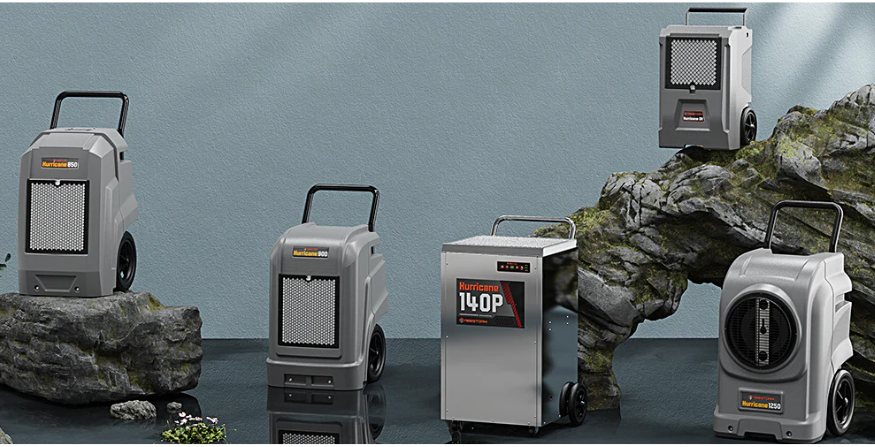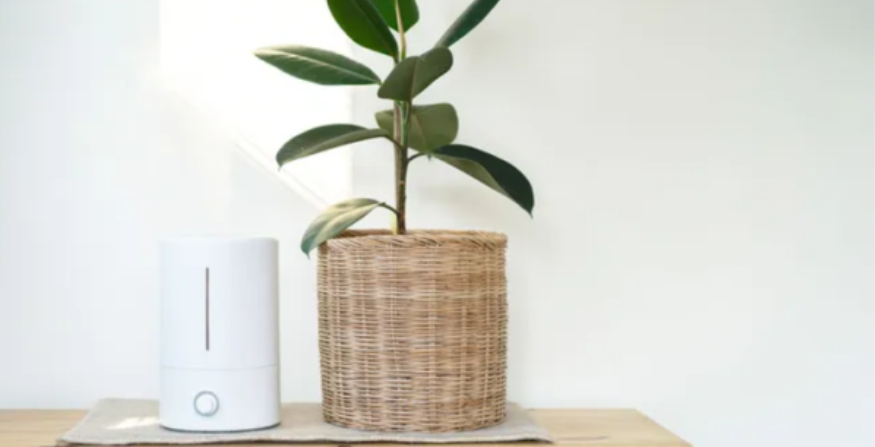Have you ever wondered if essential oil diffusers can improve air quality, or are they just for pleasant aromas? Many homeowners use diffusers for their homes, but the real question is whether they help provide healthier, fresher air. With more concern for indoor air pollution than ever, knowing the effect of an essential oil diffuser is crucial. The following are the impacts of such diffusers on air quality, their advantages, and how to utilize them appropriately for a fresher indoors.
How Essential Oil Diffusers Work
Essential oil diffusers disperse microscopic oil particles into the air, often as a fine mist or vapor. These particles carry the oils' scent and potential therapeutic properties, which interact with the surrounding air. The effects of these diffusers vary depending on the type of oil used and the conditions in the room.
For example, using eucalyptus oil in a diffuser might establish a decongesting mood, and lavender can promote an atmosphere of calm. The diffusing process works to beautify the atmosphere in your space but has no action on dust mites or other air allergens that cause pollution. Therefore, it should be complemented by another device, usually an industrial dehumidifier or HEPA purifier, for complete air purity.
Can Essential Oils Purify the Air?
Many essential oils are said to have antibacterial, antifungal, or antiviral properties. For instance, tea tree oil is often extolled for its antifungal effects, while thyme and eucalyptus oils may be said to reduce airborne bacteria or viruses. However, while these properties are exciting, it is important to remember that essential oil diffusers are not a substitute for dedicated air quality solutions.
When used in conjunction with other air quality tools, such as commercial dehumidifiers, essential oils can help create a cleaner indoor environment. For instance, a house that suffers from musty smells due to excessive moisture may benefit from using a dehumidifier to regulate moisture levels while using lemon or orange oil for freshness.
Benefits of Using Essential Oil Diffusers
Essential oil diffusers bring several benefits to your living space that can indirectly contribute to better air quality and well-being.
Natural Air Freshening
Diffusers create an inviting ambiance by masking unpleasant odors with natural fragrances. Unlike synthetic air fresheners, which may contain harmful chemicals, essential oils like citrus, peppermint, and lavender provide a clean scent without introducing toxins.
Enhancing Relaxation and Mental Clarity
Although not directly related to air quality, diffusers with calming oils such as chamomile or bergamot can improve mood and mental clarity. This benefit is precious in stressful environments like home offices or bedrooms.

Potential Antimicrobial Action
Some oils, like tea tree, thyme, and eucalyptus, have antimicrobial properties against airborne microbes. This makes them an excellent addition to other air-cleaning methods. For instance, diffusing tea tree oil in a damp bathroom may reduce the presence of mold spores.
Supporting Respiratory Health
Some of the oils include eucalyptus and peppermint, which are known to soothe breathing and help maintain healthy lungs. Hence, they are widely used during the cold and flu seasons.
Best Essential Oils for Air Quality Improvement
Every oil has unique properties that address a specific indoor air problem.
Tea Tree Oil: This oil is highly known for its antifungal and antibacterial properties. It is perfect for houses experiencing mold or mildew problems.
Eucalyptus Oil: Eucalyptus oil purifies the air and opens up the airways. It is suitable for houses where respiratory health is an issue.
Lemon Oil: Lemon oil makes the indoor air fresh and refreshing. Its mild antimicrobial properties also ensure that the indoor environment is clean and fragrant.
Peppermint Oil: Peppermint oil freshens the air and repels ants and spiders. It also prevents pests.
Lavender Oil: Lavender oil is primarily known for its soothing smell, which helps to eliminate unpleasant odors and create a peaceful atmosphere.
Practical Tips for Using Essential Oil Diffusers Safely
To benefit from essential oil diffusers safely and effectively, adopt the following best practices:
Use High-Quality Oils: Always use therapeutic-grade essential oils to avoid synthetic additives that may damage air quality. Low-quality oils tend to release toxins when heated or dispersed.
Maintain Your Diffuser: Dedicate time to cleaning the diffuser regularly to ensure there is no mold buildup or oil residue. Cleaning is essential for optimal working and preventing air contamination.
Do Not Overuse Diffusers: Too many oils may cause overpowering odors and irritate your respiratory system. Follow the guidelines given for your model and use only what is specified.
Pair Diffusers with Ventilation: Diffusers should be coupled with ventilation. While diffusers freshen the air, proper ventilation is necessary for maintaining overall air quality. Windows should be left partially open, or your HVAC should be on to ensure sufficient ventilation.
For homes with greater air quality issues, pairing these diffusers with commercial dehumidifiers or air purifiers will be quite comprehensive.
Are Essential Oil Diffusers Enough for Clean Air?
Although essential oil diffusers improve air freshness and add therapeutic benefits, they cannot be used alone to improve air quality. They cannot remove harmful pollutants like dust, allergens, or VOCs. Tools like HEPA air purifiers and dehumidifiers are needed to address such issues.
Diffusers are most effective in a larger plan to improve indoor air quality. For instance, a house with too much moisture can be significantly improved by using a dehumidifier to prevent mold growth, while diffusing tea tree oil gives the house a fresh, clean smell.

Comprehensive Air Quality Tips for a Healthier Home
Improving indoor air quality requires a combination of practices that address different environmental factors.
Control Humidity Levels: Mold and mildew thrive in high humidity, which worsens air quality. Dehumidify the space and keep it between 30% and 50%.
Clean Surfaces Regularly: Dust and allergens collect on furniture and floors. Cleaning them regularly is vital to keep the indoor air healthy.
Bring in Air-Purifying Plants: Some plants, like spider plants and peace lilies, clean the air from toxins and are aesthetically beautiful for your living space.
Proper Ventilation: Avoid the accumulation of indoor contaminants by providing adequate ventilation for indoor pollutants. Open windows once in a while or install air circulation machines.
Air Purification: Air purifiers, especially those with HEPA filters, remove particles, such as dust, pollen, and pet dander, from the air, making it cleaner than before. When combined with essential oil diffusers, this provides a balanced system that is fresh and healthy.
Conclusion: A Holistic Approach to Air Quality
Essential oil diffusers can be a great addition to your air quality kit—providing natural fragrances and even antimicrobial action—but they are a supplemental tool, not the key. Supplement them with practical solutions like industrial dehumidifiers from Abestorm, good cleaning, and ventilation for a genuinely healthy indoor environment.
With a holistic approach, you can have a fresher and more welcoming home, which promotes your health. Essential oil diffusers enhance the ambiance, and together with proper air quality measures, you achieve cleaner health.







Shop For Dehumidifier